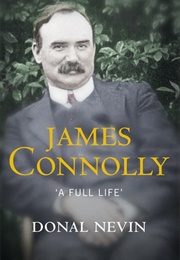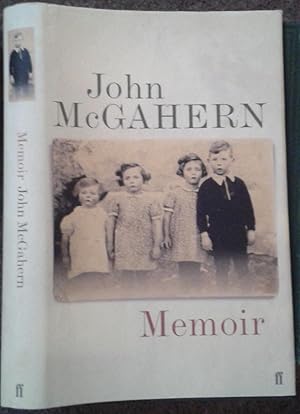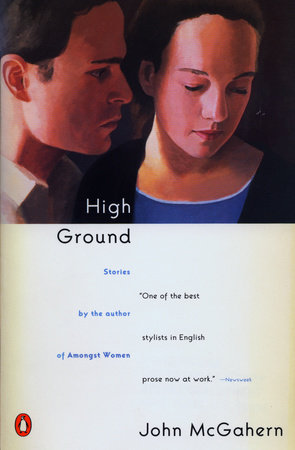- McGahern's beautifully nuanced writing draws you into the world of 1950/60's Leitrim, with its inhabitants, its fields, streams, foxgloves and wild strawberries in summer. And also the poignancy of childhood loss, love and hate and bewilderment, the gradual growing mind of an adolescent keen to learn and become free from the tyranny of a moody, brutally inconsistent father.
- John McGahern brought back many memories of country life in Ireland to me. My childhood was during the 70s in rural Ireland and yet I could identify with much of Mr McGahern's better experiences and emotions towards the land and the people.
- John McGahern Biography Born November 12, 1934, in Dublin, Ireland; died of cancer, March 30, 2006, in Dublin, Ireland.
An intense and haunted memoir of childhood love and loss. John McGahern's mother died young, of cancer - leaving him in the charge of his father, a police sergeant trapped in a rural station where nothing ever happened, during the war years when Ireland was cut off from the outside world. At the heart of the book, rendered in exquisite detail, are McGahern's memories of his mother and of the.
- The Guardian,



I was working as a teacher in Dublin in 1963 when my first novel The Barracks was published and widely praised. Against this small but general tide of approval, a young priest, Father McKiernan, who was principal of the new secondary school in Ballinamore, removed the novel from the town library on the grounds that it was unfit for public consumption. Each morning Father McKiernan dropped into my Aunt Maggie's shop to buy cigarettes. When she learned he had removed the novel, he was told bluntly, 'Until you put Sean's book back in the library, I'm afraid, Father, you'll have to buy your cigarettes somewhere else.'
In the winter of 1963-64 I wrote The Dark, a novel about a boy growing up in the Ireland of that time, too quickly. Among other things, it dealt with masturbation, the conflict between the call to the priesthood and sexual desire; and there is a scene which may have caused the subsequent trouble: when a priest enters the boy's bed. I also won the Macauley, a prize of £1,000, which stipulated that the winner travel abroad for a year. It was a large award for the time, as £1,000 could purchase a small house in Dublin. In the summer I met the Finnish theatre director Annikki Laaksi in Paris. That October I was given a year's leave of absence without pay by the school to avail of the Macauley. I went to Helsinki and later in the year married Annikki. Finland was not a country I felt I could ever live in, and after Christmas we moved to London and then to Spain, where we had been given the loan of a house on the Almeira coast.
While we were there The Dark was published in London in May of 1965 but seized by Customs and banned in Ireland. This gave rise to violent controversy, and I was glad to be in Spain and out of the storm. In Dublin, we had looked on the Censorship Board as a joke. Most banned books, like most books published, weren't worth reading and those that were could easily be found. I somehow never thought that it could have anything to do with me or my life. Now that I was in the middle of it I found it childish and unpleasant, and I was a little ashamed that our own independent country was making a fool of itself yet again. I wondered privately if the novel had been written less quickly and with more care spent on the writing they might not have noticed. I refused to take part in any protest on the grounds that it would do the whole sorry business too much honour. Back in London I wrote to the school stating my intention to return at the end of the year's leave of absence. The headmaster replied that there would be difficulty if I tried to return to the school.
He advised me to obtain a position in London, and would be only too happy to write references. While I wanted no part of the censorship row, I was determined, as the school had been my work and livelihood for many years, not to go quietly. In awkward situations in Ireland, great pressure is brought to bear to do the so-called decent thing and go quietly away. I was not prepared to go quietly.
I crossed to Dublin and turned up at the school on the day I was due to return. I informed nobody and there were no journalists at the school. All the staff were on edge but everybody welcomed me back with great friendliness. When the bell rang for classes, a deeply embarrassed Mr Kelleher, the headmaster, read out a legal letter from the manager, Father Carton, the parish priest of Clontarf, saying I was barred from entering the classroom. He read this out in the corridor with his back to my old classroom door. Father Carton had gone on holiday to avoid the unpleasantness. I spent the rest of the day in the school. Now that our ordeal was over, the headmaster did his best to make me comfortable. He gave me a newspaper to read. 'Hardly a day goes by but there's something about you in the paper, A Mhaistir,' he said pityingly. I drank endless cups of tea. I had a pleasant lunch with all my old colleagues and at 2.15 we all left together as if it had been just another school day.
Memoir John Mcgahern

When he returned from his holidays, Father Carton saw me reluctantly. In a roundabout way he told me that he wasn't to blame, as the order for my dismissal had come from the archbishop who would not tolerate having a banned writer working in his schools. 'You have gone and ruined your life,' the old priest told me. 'And you have made my life a misery as well. I can't put my head out the door these days but I'm beset by bowsies of journalists.' When pressed by the Teachers' Union for a reason for my dismissal, he replied in writing, with this single sentence: 'Mr McGahern is well aware of the reason for his dismissal.'
I met the full board of the national Irish Teachers' Union in the late middle of an afternoon. They were careful and hostile. Some of the men had taken whiskey to brace themselves for the meeting. Word had leaked out through the newspapers that I had married a Finnish woman in a register office. The General Secretary, another Kelleher, who had also braced himself with whiskey, allowed his irritation with me to overcome his caution. 'If it was just the auld book, maybe - maybe - we might have been able to do something for you, but with marrying this foreign woman you have turned yourself into a hopeless case entirely,' he said. 'And what anyhow entered your head to go and marry this foreign woman when there are hundreds of thousands of Irish girls going around with their tongues out for a husband?' he added memorably, especially since not many of them had been pointed in my direction.
The Stoat By John Mcgahern

There were letters for and against me in the newspapers, debates on television and radio, and I was glad to get back to London. The protest against my dismissal that mattered most to me came from the parents of children I had taught. Outside of that I didn't greatly care. In the Dail, the Minister of Education was asked by the Leader of the Labour Party, Brendan Corish, about what had become known as the 'McGahern Case'. How is it, the question ran, that while the State pays for the training of teachers, their salaries and the running of the schools, it has no say when it comes either to the hiring or firing of teachers, irrespective of their rights as citizens; and could he give a satisfactory reason to the House for Mr McGahern's recent dismissal. The question was crafted carefully. While it was a statutory offence to sell or try to sell a banned book, it was not an offence to have written that book. 'When the Church decides on a course of action, it generally has a good reason for that action,' the Minister replied. It turned out that my case was unique only because it had been played out in public.
Following a BBC television programme, I received letters from men who, like me, had been trained in St Patrick's but were now teaching in Birmingham and Glasgow and Newcastle. According to their letters, they had been sacked because they had run foul of a bishop or a priest, or had infringed some article of Catholic dogma and had no recourse but to disappear silently into Britain.
· This is an edited extract from Memoir by John McGahern, published by Faber on September 15 price £16.99
Amongst Women By John Mcgahern
| by John McGahern
▼Members
▼Tags ▼LibraryThing Recommendations ▼Member recommendations
None Sign up for LibraryThing to find out whether you'll like this book. No current Talk conversations about this book. Showing 2 of 2 A wonderful read from the master. Having read his short stories a few months ago, it was interesting to read about McGaherns earlier life and see where his inspiration came from. The sections concerning his mother are very moving and you can tell she had a profound influence on him. Geographically it never really spans more than a few town lands, but McGahern beautifully creates the sense that, to a child, the whole world is contained within. His father, the sergeant, stalks the pages - a petty, vindictive bully of a man, who beat his children at every opportunity. McGahern describes at one stage how his father, who loved oranges, when he knew he was to be married, bought two dozen oranges in Galway and sat on a park bench and ate them all. He felt that he never would be able to afford oranges again once he was married. This image stayed with me after I’d finished the book. It’s a book full of McGaherns restrained prose, his carefully honed sentences and insight. Although some parts are harrowing, there’s no room for sentimentality or self-pity, which I think sets it apart from other memoirs I have read, there’s just McGaherns unflinching, humane gaze. Just a masterpiece. ( ) 1mackthefinger | Jul 9, 2010 | Considered, elegant, poetic, painful ... a very powerful memoir by one of Irish literature's stylists ( ) blackandamber | Sep 4, 2006 | Showing 2 of 2 ▼Published reviews ▼Common Knowledge
References to this work on external resources. Wikipedia in English (1)'In his award-winning novels and stories, John McGahern explores the ordinary lives of men and women to reveal the intricate workings of the human heart and mind. Now, in All Will Be Well, he turns to his own life, telling the story of his childhood in the Irish countryside and the beginnings of his life as a writer.' 'McGahern grew up the eldest of seven children in County Leitrim, where North and South meet under the Iron Mountains. His early years were marked by his father's violent nature, the selflessness of his mother - a teacher of uncommon independence - and the tragedy of her death when McGahern was only nine. He describes her and how her love remained a source of strength for him and his siblings, helping them to survive their father's tyrannical rule and, ultimately, enabling them to break free into their own lives.' 'McGahern traces his career as a writer as it takes him increasingly far from home - to Dublin, London, Paris, Helsinki, Spain, the United States - before it brings him back to the almost unchanged landscape in which he had grown up and which had indelibly shaped his life and work. His lyrical descriptions of the fields and quiet roads of his home catch the subtle beauty of one of Ireland's least known counties, while his portraits of its inhabitants are drawn with great insight and tenderness.'--BOOK JACKET. No library descriptions found. ▼LibraryThing members' description
|
Audible(0 editions) Project Gutenberg(0 editions) Swap(15 want) Popular coversRatingAverage:
| |||||||||||||||||||||||||||||||||||||||||||||||||||||||||||
